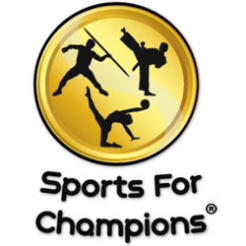The Fundraising Standards Board has ruled that fundraising company Sports For Champions breached fundraising codes by not making it clear how monies would be allocated when fundraising in partnership with a school.
FRSB investigated the company following a complaint, and made an adjudication on 11 March, which it published it today.
The FRSB said in its adjudication that it did not uphold additional concerns from the same complainant about the company’s fundraising model.
The model saw children competing with their peers for sponsorship from the public in return for incentives, and the FRSB had received a complaint this was ‘unethical’ and potentially put children’s welfare at risk.
Sports For Champions runs schools-based fundraising events, encouraging students to seek sponsorship and raise funds both for their own school and to support young athletes.
The FRSB ruled that Sports For Champions had breached section 5.2 (f) of the Institute of Fundraising's (IoF's) Code of Fundraising Practice because it had not included a statement in its fundraising materials outlining how monies would be split between the participating school and Sports For Champions’ project supporting young athletes.
When asked to clarify the fundraising model, Sports For Champions confirmed that 60 per cent of the funds it raised at events went to the school and 40 per cent went to athletes who are struggling to fund their training costs.
The organization also confirmed that £1 per participating pupil is deducted to help with “operational costs” and that the 60:40 per cent split is calculated thereafter.
This clause states that: "If organisations are fundraising in partnership with one or more organisations, organisations ought to state how monies will be allocated between the organisations."
The FRSB acknowledged that, upon receipt of the complaint, Sports For Champions had made significant changes to its sponsorship forms, welcome pack and website, including the addition of such a statement.
“Being open with supporters is critical for building public trust,” said Colin Lloyd, chair of FRSB, in a statement accompany the adjudication. “Charity fundraising materials must make it absolutely clear to supporters and sponsors where their donations are going.”
“Sports For Champions is to be commended for working quickly to rectify this and the company’s fundraising literature and website now include a statement that shows how funds are allocated.”
In relation to the complainant’s concerns that the fundraising model posed a risk to children’s welfare, the FRSB considered section 3.3 of the Code, which states:
"Organisations ought to provide children and parents/guardians with guidance on how to undertake fundraising safely and legally."
The FRSB Board concluded that Sports For Champions was not in breach of this clause, having delivered a presentation to all participating schools that reminded children to only approach “safe donors” (friends, parents and other relatives) for sponsorship and never to approach strangers.
The head teacher at the complainant’s school also confirmed that “the message was very clear to the children about being safe”.
During the adjudication, the FRSB consulted the IoF’s Fundraising in Schools guidance, which accompanies the Code of Fundraising Practice. As with all IoF fundraising guidance that lies beyond the Code, this guidance is not a mandatory requirement for the self-regulation of fundraising, but has been developed to provide additional support to practitioners.
The guidance includes a clause stating that “under 7s should not be encouraged to compete for badges or for any other form of incentive”.
As Sports For Champions gives participating schools the option to choose between an incentive-led or a token gift-based fundraising model, the FRSB recommended that the company make adjustments to its incentive scheme to conform with the guidance.
At the time of publication, no one from Sports For Champions was available for comment.
The FRSB also recommended that the IoF review the Fundraising in Schools guidance to assess whether any elements should be reallocated into the main body of the Code.









